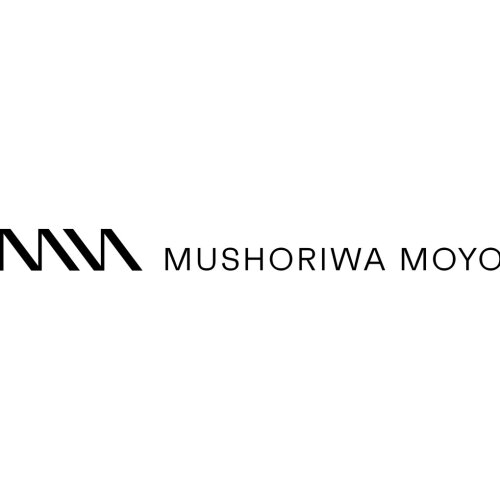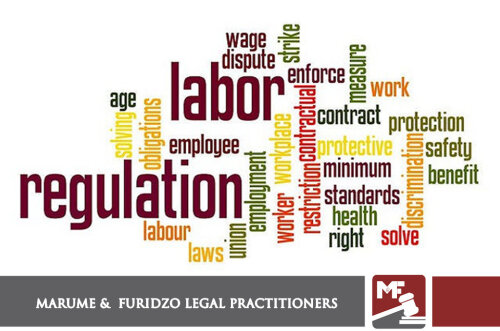Best Father's Rights Lawyers in Zimbabwe
Share your needs with us, get contacted by law firms.
Free. Takes 2 min.
Free Guide to Hiring a Family Lawyer
Or refine your search by selecting a city:
List of the best lawyers in Zimbabwe
About Father's Rights Law in Zimbabwe
Father's Rights in Zimbabwe pertain to the legal recognition and actions concerning a father's responsibilities and entitlements towards his children. These rights are crucial in protecting the familial bonds and ensuring the well-being of children. Zimbabwean law recognizes the importance of both parents in the upbringing of their children and strives to establish equitable rights and responsibilities. This guide aims to help fathers understand their legal standings and avenues for asserting their rights within Zimbabwe's legal framework.
Why You May Need a Lawyer
Seeking legal assistance in matters relating to Father's Rights may become necessary in several circumstances:
- **Child Custody Disputes**: When parents separate or divorce, determining the custody arrangements is a critical legal issue that often requires professional guidance.
- **Paternity Issues**: Establishing paternity can be vital for fathers to assert their rights and responsibilities, necessitating legal expertise.
- **Child Support Matters**: Calculating and arranging appropriate child support can often lead to legal disputes that may require legal intervention.
- **Parental Alienation**: Situations where a father is intentionally alienated from their child by another guardian can be complex and warrant legal counsel to resolve.
- **Access to Education and Healthcare Decisions**: Fathers should be involved in significant decisions about their child's welfare, requiring legal advice to ensure rights are not withheld.
Local Laws Overview
Zimbabwean laws concerning Father's Rights primarily revolve around children's welfare. The key legal frameworks include:
- **The Children's Act**: This act provides for the welfare and protection of children, emphasizing the involvement of both parents.
- **The Maintenance Act**: It provides guidelines and authority for ordering and enforcing child support obligations.
- **The Matrimonial Causes Act**: This law deals with the dissolution of marriages and typically intersects with decisions on custody and support.
- **Customary Laws**: Recognized alongside general law, customary practices can also affect family rights and responsibilities.
Frequently Asked Questions
What are the legal rights of a father in Zimbabwe?
Fathers in Zimbabwe have legal rights to seek custody, access, and involvement in the upbringing and welfare of their children. These rights, however, are balanced with responsibilities towards child support and welfare.
How can I establish paternity legally?
Paternity can be established through voluntary acknowledgment or by obtaining a court order. DNA testing may be required to confirm biological relationships legally.
Can I get custody of my children after a divorce?
Yes, custody can be granted to fathers based on the child's best interests, regardless of the divorce. Courts evaluate several factors, including the ability to provide a stable and supportive environment.
What can I do if my child’s mother denies me access?
If access is being denied without legal grounds, you can file an application with the court seeking an order enforcing your access rights.
How is child support determined?
Child support is typically calculated based on the income of both parents and the child's needs. Courts use specific guidelines to ensure fairness in support orders.
What should I do if I cannot afford my child support payments?
Fathers who cannot meet their child support obligations should apply to the court for a variation of the order, explaining their change in financial circumstances.
Are there any legal protections against parental alienation?
Yes, the law can intervene in cases where one parent is unlawfully influencing a child against the other for custody or access purposes.
What if I live outside Zimbabwe but want to maintain my rights?
Fathers residing abroad can still exercise their rights. It is crucial to seek legal advice to navigate cross-border custody and support matters effectively.
Can unmarried fathers obtain custody or access rights?
Yes, unmarried fathers can seek custody or access similar to married fathers, but they may need to prove paternity and their commitment to the child's welfare.
How do customary laws affect my rights as a father?
Customary laws may influence family roles and rights, but statutory laws provide a parallel legal framework to assert Father's Rights, which can take precedence in formal legal settings.
Additional Resources
Individuals seeking further information or legal assistance on Father's Rights may consider reaching out to the following resources:
- **Zimbabwe Lawyers for Human Rights (ZLHR)**: Offers legal support and advice on human rights issues, including family law.
- **Ministry of Justice, Legal and Parliamentary Affairs**: Provides information on the legal framework and services available in Zimbabwe.
- **Local Legal Aid Clinics**: Accessible avenues for affordable legal advice and representation.
- **Community-Based Organizations**: Engage with groups focused on family welfare and advocacy for children’s rights.
Next Steps
If you require legal assistance in matters of Father's Rights, consider the following steps:
1. **Consult a Lawyer**: Engage a legal professional who specializes in family law to discuss your specific situation and options.
2. **Gather Documentation**: Collect relevant documents, such as birth certificates, marriage or divorce papers, and any correspondence related to your case.
3. **Understand Your Rights**: Familiarize yourself with your legal rights and obligations surrounding your child's welfare to approach the matter informed.
4. **Consider Mediation**: Explore mediation as a less adversarial approach to resolving disputes related to custody or support, which courts often encourage.
5. **Stay Informed**: Keep abreast of any changes in laws or regulations that may impact your rights as a father.
Lawzana helps you find the best lawyers and law firms in Zimbabwe through a curated and pre-screened list of qualified legal professionals. Our platform offers rankings and detailed profiles of attorneys and law firms, allowing you to compare based on practice areas, including Father's Rights, experience, and client feedback.
Each profile includes a description of the firm's areas of practice, client reviews, team members and partners, year of establishment, spoken languages, office locations, contact information, social media presence, and any published articles or resources. Most firms on our platform speak English and are experienced in both local and international legal matters.
Get a quote from top-rated law firms in Zimbabwe — quickly, securely, and without unnecessary hassle.
Disclaimer:
The information provided on this page is for general informational purposes only and does not constitute legal advice. While we strive to ensure the accuracy and relevance of the content, legal information may change over time, and interpretations of the law can vary. You should always consult with a qualified legal professional for advice specific to your situation.
We disclaim all liability for actions taken or not taken based on the content of this page. If you believe any information is incorrect or outdated, please contact us, and we will review and update it where appropriate.
Browse father's rights law firms by city in Zimbabwe
Refine your search by selecting a city.

















